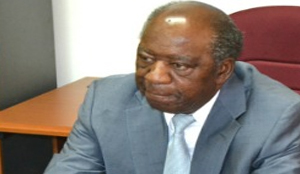By SARAH TEMBO –
FINANCE Minister Alexander Chikwanda has called on the Ministry of Agriculture to help increase productivities in small-holder agricultural sub sector as it is a key to the country’s economic development.
Speaking at the national round table workshop organised by Government and the International Fund for Agricultural Development (IFAD) in Lusaka, the minister said improving purchasing power for the rural sector would spur economic growth.
The minister said the vital role of the private sector in smallholder agriculture and rural development in promoting access to markets, undertaken innovations and providing essential services could not be overemphasised.
“I call upon the Ministry of Agricultural to come with workable ideas that will help improve the agricultural sector, agriculture has great potential to bring economic development,” he said.
Mr Chikwanda said Government was committed to bringing on board all the players in the agricultural sector in a bid to develop the sector.
“The government of Zambia is committed to bringing on board all players in the agricultural sector including the private sector and will fully support initiatives aimed at building effective working relationships with the private sector,” he said.
Speaking at the same event Agriculture and livestock Minister Wylbur Simuuusa said the implementation of the national agriculture policy under review will address the challenges for the small scale farmers.
He said there was need for credible investment to operationalise the national agriculture policy and reduce poverty in rural areas.
“The national agriculture policy is under review which is aimed at addressing the needs of the small-scale farmers and increase investment in the sector and will be launched in the few months time,” Simuusa said.
He said government attached great impotence to the agriculture and rural development because of its potential to diversify and remodel the Zambian economy.
Simuusa further stated that the sector currently accounts for 18 per cent of gross domestic product and provided livelihood for more than 65 per cent of the rural population.
“The sector employs 67 per cent of the total population of the total formal labour force and it is by far the main source of income and employment for the Zambian people,” he said.
Brian Baldwin, senior advisor at IFAD said lack of capital investment had continued affecting the growth of the small- scale farmers in the country.
“The objective of the workshop is to have an opportunity to discuss the main findings and recommendations from Zambia country programme evaluation and reflect on their implications,” Baldwin said.
Officer-in-charge, independence office of evaluation of IFAD, Kees Tuineburg said even though IFAD was a relatively small financial partner in Zambia, the country programme had made an important contribution to the development of agriculture and rural development.







